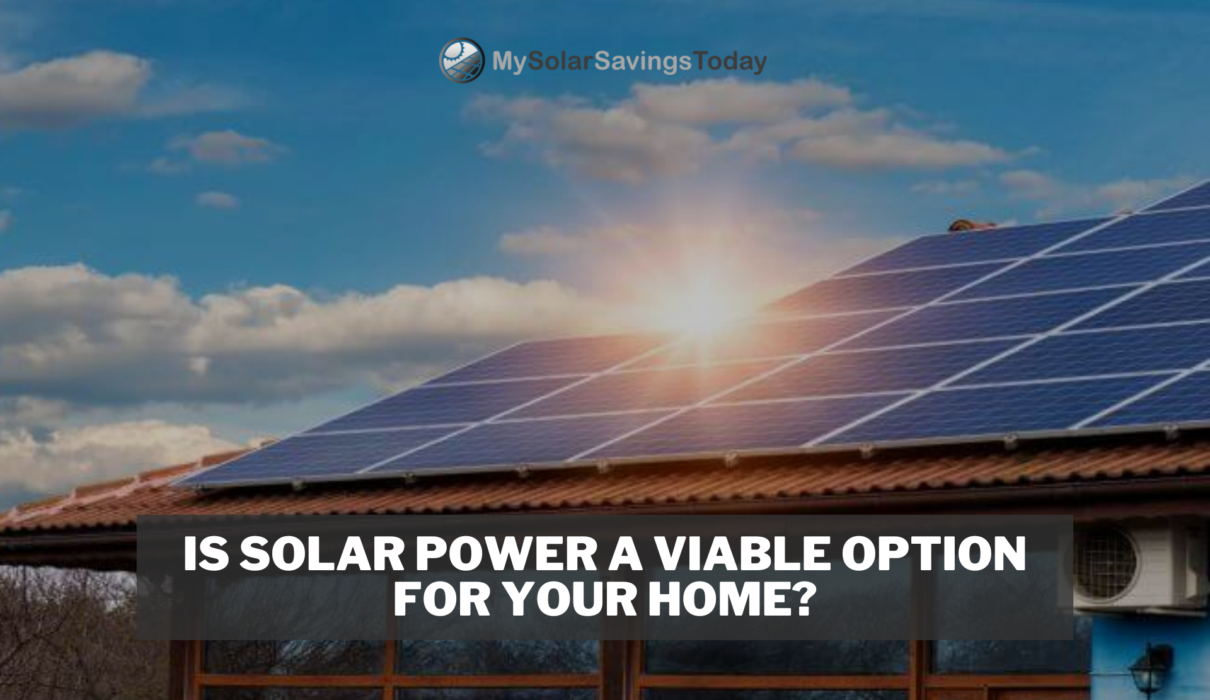With growing concerns about climate change and rising energy costs, homeowners are increasingly looking for sustainable energy solutions. Solar power, once considered an expensive luxury, has become a viable option for many. This article explores the practicality of solar power for residential use, assessing its benefits, costs, and potential drawbacks to help you decide if it’s the right choice for your home.
Benefits of Solar Power
- Reduced Energy Bills: One of the most compelling reasons to install solar panels is the potential for significant savings on your electricity bills. Solar panels generate electricity from sunlight, which can reduce or even eliminate your dependence on the grid.
- Environmental Impact: Solar power is a clean, renewable energy source that reduces your carbon footprint. By using solar energy, you decrease greenhouse gas emissions, contributing to a healthier planet.
- Increased Home Value: Homes equipped with solar panels can see an increase in property value. Buyers often find energy-efficient homes more attractive due to the promise of lower utility costs.
- Energy Independence: Solar power offers a degree of energy independence. With solar panels, you are less vulnerable to energy price fluctuations and grid outages.
- Incentives and Rebates: Many governments and local authorities offer incentives to encourage solar adoption. These can include tax credits, rebates, and other financial benefits that make solar installations more affordable.
Costs and Considerations
- Initial Investment: The upfront cost of purchasing and installing solar panels can be substantial. Although prices have decreased over the years, a complete solar system can still cost several thousand dollars. However, this investment often pays off in the long term through energy savings.
- Maintenance: Solar panels require minimal maintenance, but they are not entirely maintenance-free. Occasional cleaning and periodic checks to ensure optimal performance are necessary. In some cases, inverter replacements may be needed after a few years.
- Weather Dependence: Solar power generation is dependent on sunlight. Homes in regions with limited sunlight or long winters may see reduced efficiency. It’s important to assess your geographic location and local climate before investing in solar panels.
- Space Requirements: Adequate roof space is necessary to install a solar panel system that meets your energy needs. Shaded areas or irregularly shaped roofs can limit the efficiency and feasibility of a solar power system.
- Battery Storage: To maximize the benefits of solar power, especially during nighttime or cloudy days, battery storage systems can be added. However, these systems add to the initial cost and complexity of the installation.
Assessing Solar Viability for Your Home
To determine if solar power is a viable option for your home, consider the following steps:
- Energy Needs: Evaluate your household’s energy consumption to understand how much power you need and how much you can offset with solar panels.
- Roof Condition and Orientation: Inspect your roof’s condition and orientation. South-facing roofs with little to no shading are ideal for solar panels.
- Local Solar Resources: Use tools like the National Renewable Energy Laboratory’s PVWatts Calculator to estimate solar production based on your location.
- Financial Analysis: Calculate the potential cost savings and payback period. Include factors such as available incentives, financing options, and projected energy price increases.
- Professional Consultation: Consult with a reputable solar installer to get a detailed assessment and quotation. They can provide insights specific to your home and help you navigate local regulations and incentives.
Conclusion
Solar power can be a viable and beneficial option for many homeowners. While the initial investment may be high, the long-term savings, environmental benefits, and potential increase in property value can make it a worthwhile consideration. By carefully assessing your home’s energy needs, roof suitability, and financial factors, you can make an informed decision about adopting solar power. As technology advances and prices continue to fall, solar energy is becoming an increasingly accessible and practical solution for sustainable living.

